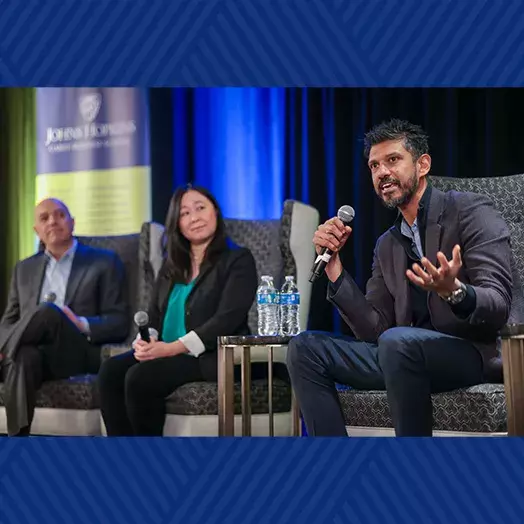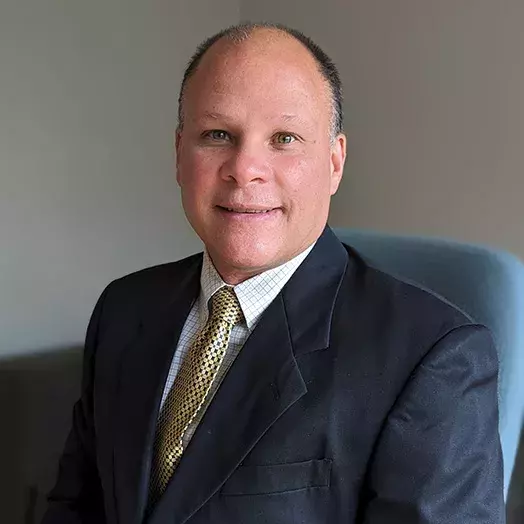
Alumna harnesses data analytics to grow African women-led businesses
Mabinty Koroma-Moore came to Johns Hopkins Carey Business School looking to improve her understanding of supply chain management in developing countries, analytics, and risk management. Ultimately, she used her master’s degree and journey at Carey Business School as the launch pad for her own impact investing firm in Kenya.
When Koroma-Moore was looking for graduate programs in 2015, she knew she wanted a quantitative-based risk management program with a heavy emphasis on analytics. She chose Carey Business School’s Master’s in Business Analytics and Risk Management for the curriculum, relationship with the Johns Hopkins School of Advanced International Studies, and global network. (The degree was known as Enterprise Risk Management when Koroma-Moore graduated.)
“Johns Hopkins has the reputation for shaping industries through thought partners and innovative thinking,” Koroma-Moore said. “And in addition to learning from professors, I learned from my peers. My classmates came from the World Bank, Deloitte, and from diverse finance and investing backgrounds. In that way, going to Carey felt like it was a snapshot of the world. I was forging long-lasting relationships while also expanding my career.”
Koroma-Moore refers to her time at Carey as “being a student of the world.” And it was a professor at Carey that launched her career across the globe.
“I first learned about investing when I took a corporate finance class with [Associate Professor Jim Liew]. He had both a great way of teaching and great personality. He was promoting and circulating events at Carey, and it was at those convenings where I really started to learn more about impact investing,” she said.
While at a Carey event, Koroma-Moore met entrepreneurs using new technology and block chain. She began asking herself, “How can I do this in a really impactful way?”
The question stuck with her as she graduated and moved to New York City for a role in impact investing. While traveling to Nairobi as part of that job, she led a two-day impact measurement and management training for fund managers, where she drew on her own experience as a Sierra Leonean-American and the experiences of the African fund managers and entrepreneurs. She met with African female entrepreneurs from across Kenya and listened to their businesses’ pain points and resource gaps.
That’s when it clicked for Koroma-Moore: “How can we use impact investing to address these gaps?”
As she worked with entrepreneurs and investors to measure their impact, she wanted to see her own impact increase. So she resigned from her New York job and moved to Kenya.
Impact investing on the global stage
Her start-up, LIVE Africa, aims to improve impact investment management, with a focus on creating better outcomes for African women. She cites the African Development Bank’s estimate of a $42 billion financing gap for female entrepreneurs as the basis of their work. With that gap in mind, Koroma-Moore began building the firm with a few questions as guideposts:
“How is investment impacting women across the value chain? How can we work with investors to surface opportunities for early entrepreneurs? How can we improve how investments are deployed given gender dynamics? And how can we improve the value that entrepreneurs ascribe to impact reporting?”
Koroma-Moore was over 7,000 miles away from the Carey Business School campus in Baltimore. But the Johns Hopkins global network is vast, and she reconnected with fellow Carey alumnus, Anvit Goyal, whom she recruited to join LIVE Africa.
Nearly two years since inception, LIVE Africa is a busy operation. And Koroma-Moore splits her time between reviewing current clients’ data sets, pitching new investors, reviewing contracts, and developing proposals. One of LIVE Africa’s largest projects is raising the Kuishi Afrika Fund, an impact fund to invest in African women-led businesses during their early stages.
Investing for good
In addition to her 10-to-15 hour days—she works extended hours to account for meetings with colleagues in New York—Koroma-Moore volunteers her time as a board member for Impact Capital Forum. Through her board service, she is co-leading a working group on impact investing in Africa.
While she acknowledges there is still much work to be done, Koroma-Moore is optimistic that impact investing can create lasting, positive change.
“I am focused on doing business to deliver positive impact across Africa,” she said. “There are lots of resource disparities, and I want to change that. How can we improve sustainability and accessibility to impact capital? The private sector has resources to address some of these gaps, and business allows me to draw from a variety of schools of thought using innovative models to really deliver material impact.”


